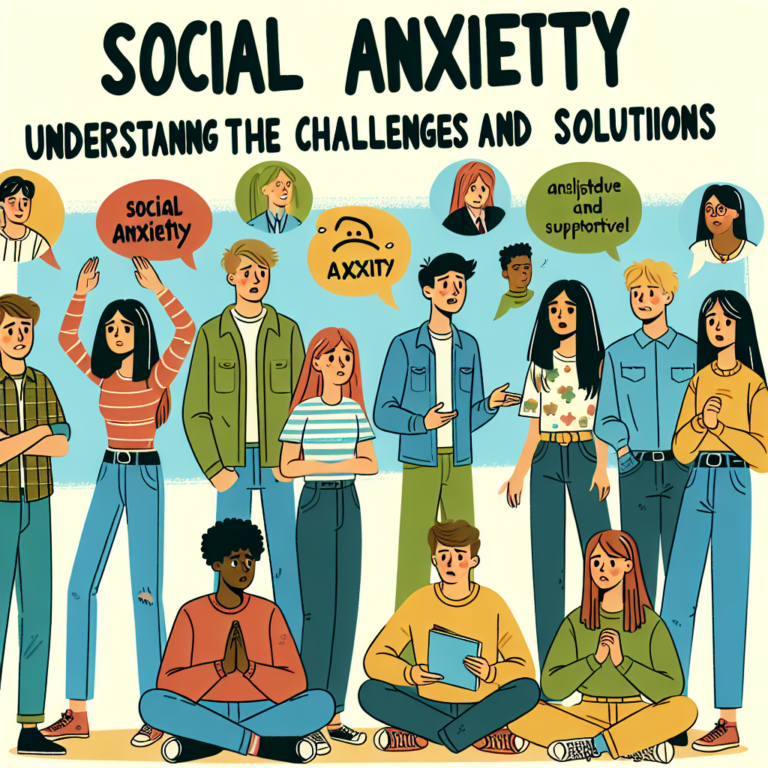
Introduction
In today’s fast-paced world, achieving inner peace often feels elusive, especially for extroverts. With their vibrant social lives and outward energy, extroverts thrive on interaction and stimulation. However, the constant buzz can lead to burnout and a disconnection from one’s inner self. The balancing act of cultivating mindfulness while embracing their extroverted nature is essential for sustained well-being. This journey is not just about finding quiet moments; it’s about embracing a lifestyle that harmonizes external engagement with internal tranquility. In this article, we will explore Balancing Act: How Extroverts Can Cultivate Mindfulness and Inner Peace, shedding light on practical strategies, case studies, and actionable insights.
Understanding Extroversion
What it Means to be an Extrovert
Extroverts derive their energy from social interactions, often feeling recharged and vibrant after engaging with others. This sociability brings many opportunities, both personally and professionally, but it can also lead to overwhelming feelings if not managed properly. Understanding the extroverted personality can help in crafting mindfulness practices tailored to this energetic disposition.
The Need for Mindfulness Among Extroverts
Mindfulness is often pigeonholed as a solitary practice, but it is essential for extroverts too. The chaotic nature of modern life can create anxiety and mental clutter. Mindfulness helps in clearing the fog, offering clarity and grounding, which are crucial for extroverts who may find themselves swept away in the chaos of constant social demands.
The Importance of Mindfulness
Benefits of Mindfulness for Extroverts
Mindfulness has numerous benefits, particularly for extroverts who are prone to overstimulation. These benefits include:
- Enhanced Emotional Regulation: Mindfulness can improve emotional awareness and help extroverts manage their reactions during social interactions.
- Decreased Anxiety: Grounding techniques can reduce the stress that comes from being constantly “on.”
- Greater Focus: Mindfulness practices can enhance concentration, allowing extroverts to engage more meaningfully.
Practical Strategies for Mindfulness
Daily Mindfulness Practices
Here are some accessible and effective daily mindfulness strategies that can fit seamlessly into an extroverted lifestyle.
1. Mindful Morning Routines
Starting the day right matters. Incorporate mindfulness into your morning routine by setting aside ten minutes for meditation or breathing exercises before diving into social activities.
2. Mindful Listening
During conversations, focus entirely on the person speaking. This practice not only sharpens mindfulness but also enriches relationships.
3. Social Meditations
Transform social gatherings into mindfulness sessions. Engage in activities that require presence and attention, like group yoga or walking meditations.
Case Study: The Power of Social Meditations
In a recent study involving a group of extroverted professionals, participants engaged in weekly guided meditations during their lunch breaks. After three months, over 75% reported improved focus and better emotional management during meetings and social interactions. This reflects how incorporating mindfulness into familiar social contexts can yield significant benefits.
Creating Peaceful Spaces
Extroverts often thrive in bustling environments, but having a dedicated peaceful space is crucial. Here are some tips for creating a sanctuary at home:
- Designate a Mindfulness Corner: Set up a small space with calming decor, soft lighting, and comfortable seating.
- Nature Elements: Incorporate plants or nature sounds to create an environment conducive to calm and focus.
Table: Mindfulness Space Essentials
| Item | Purpose |
|---|---|
| Comfortable Chair | Encourages relaxation |
| Soft Lighting | Creates a calming atmosphere |
| Relaxing Music | Supports mental focus and tranquility |
| Nature Plants | Enhances mood and air quality |
Building Mindfulness into Social Engagement
Mindful Networking
Networking doesn’t have to be superficial. Approach networking events with the intention of forming genuine connections rather than mere obligation. Set personal goals for each interaction, focusing on quality over quantity.
Mindful Celebrations
When attending celebrations, take moments to step back and breathe. Appreciate the joy around you without getting lost in the noise. This allows you to savor experiences rather than merely participate.
Case Study: Networking with Intent
A group of extroverted entrepreneurs decided to shift their networking approach by structuring their events around mindfulness workshops followed by informal mingling. They discovered that the relaxed atmosphere led to more authentic connections, significantly increasing collaboration among members.
Overcoming Challenges
Common Obstacles
While the path to mindfulness is rewarding, extroverts may encounter unique challenges, including distraction and impatience. Acknowledging these hurdles is the first step toward overcoming them.
1. Distraction
The temptation to get caught up in external stimuli can be significant. Try setting specific time blocks for mindfulness practices in your schedule.
2. Impatience
Mindfulness is a learning journey. Practice self-kindness, acknowledging that progress takes time and consistency.
Engaging with the Community Mindfully
Group Mindfulness Activities
Finding community-based mindfulness activities not only fosters connections but also enhances the practice. Look for local yoga classes, meditation meetups, or even retreats that focus on mindfulness. These shared moments create a sense of belonging while promoting inner peace.
Serving Others Mindfully
Engagement in community service can be a profound way for extroverts to practice mindfulness. Being present while helping others can ground extroverts and remind them of their interconnectedness with the world.
Case Study: Community Service
A group of extroverted volunteers at a local food bank initiated mindful service days. By focusing on the act of giving—taking time to appreciate each step in the process—they found a deeper connection to the community and reported a notable increase in their overall happiness and satisfaction.
The Ripple Effect of Mindfulness
Personal Benefits
Adopting these mindfulness practices positively impacts not just the individual but also ripples out to include family, friends, and colleagues. When extroverts lead by example, they inspire others to foster more mindful interactions.
Professional Advantages
In the workplace, mindfulness enhances collaboration and creativity. Teams that integrate mindfulness practices report improved communication, reduced conflict, and an overall more productive atmosphere.
Table: Impact of Mindfulness in Professional Settings
| Aspect | Benefit |
|---|---|
| Team Communication | Enhanced clarity and understanding |
| Conflict Resolution | Reduced tension and improved collaboration |
| Creativity | Fostered innovative thinking and problem-solving |
Conclusion
Balancing Act: How Extroverts Can Cultivate Mindfulness and Inner Peace is a vital journey toward a harmonious life. By embracing mindfulness practices tailored for their energetic nature, extroverts can experience profound inner peace without sacrificing their social essence. Remember, it’s not about changing who you are, but enhancing your life as an extrovert. Start small, remain consistent, and watch as mindfulness transforms your daily experience.
Actionable Insights
- Start Today: Set aside just five minutes for mindful breathing each day.
- Find a Mentor: Seek mentors or guides who embody a balanced approach between extroverted energy and mindfulness.
- Practice Gratitude: Reflect on daily experiences and acknowledge the beauty in them.
FAQs
1. Can extroverts truly benefit from mindfulness?
Absolutely! Mindfulness is beneficial for everyone, including extroverts. It enhances emotional regulation and focus.
2. How long should I practice mindfulness each day?
Even five minutes can make a difference, but gradually increase this time as you become comfortable with the practice.
3. What if I feel restless during mindfulness sessions?
Restlessness is common; try movements such as yoga or mindful walking to channel that energy constructively.
4. Are there social mindfulness activities I can join?
Look for community mindfulness workshops, group meditation sessions, or yoga classes that welcome all experience levels.
5. How can I incorporate mindfulness into my busy social life?
Even during social events, take brief moments to pause, breathe, and check in with your feelings. This will enhance your social experiences significantly.
By understanding Balancing Act: How Extroverts Can Cultivate Mindfulness and Inner Peace, extroverts can create lasting changes that lead to a fulfilling, peaceful life. The journey to balance doesn’t require solitude; rather, it embraces the beauty of connection while grounding it in mindfulness.

















